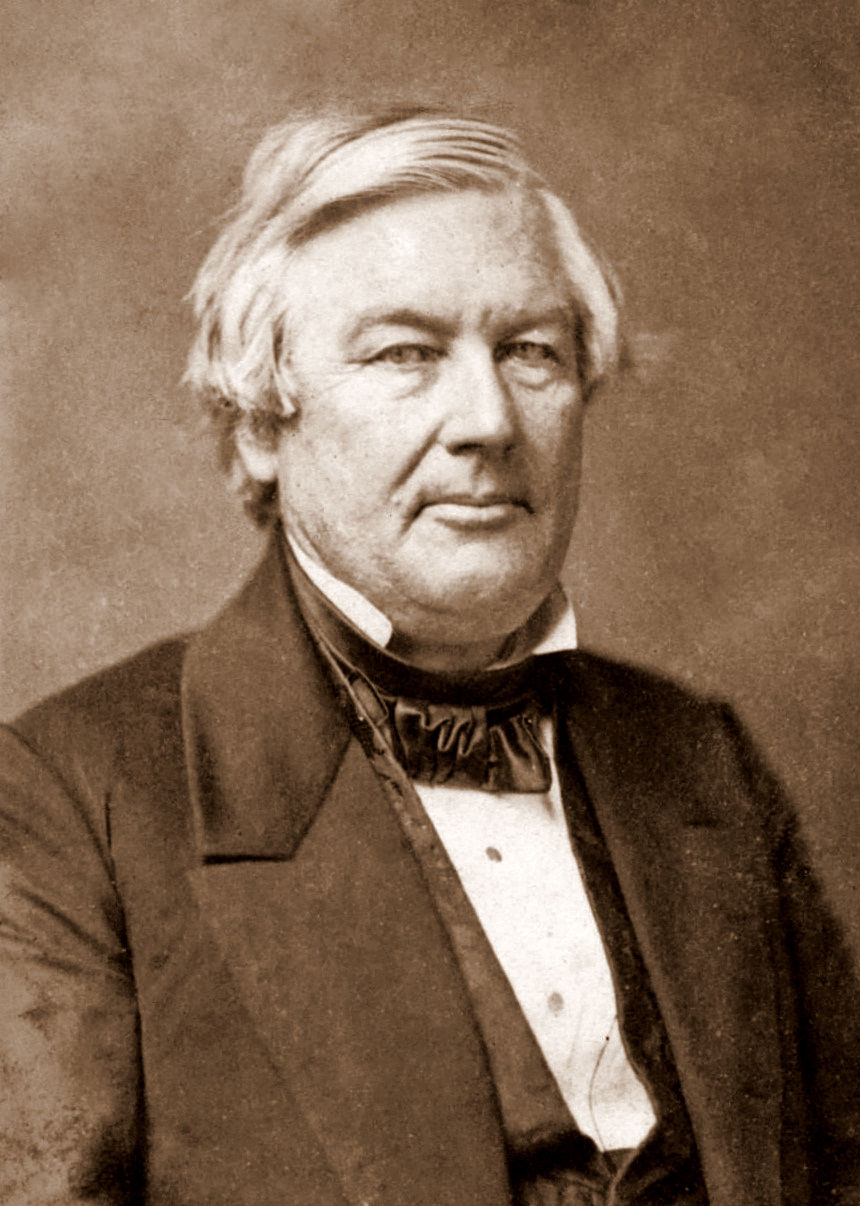Considering the poverty and struggles he endured growing up, he used his choices and actions to push his limits and connect with people and their ideas. He creates a sense of spontaneity, which made him unpredictable.
Millard Fillmore never sat idle; however, he takes his time to introspect and assess his principles. He always takes time to find ways to push his passions, although he tends to be a risk-taker.
Described as strikingly handsome, six feet tall, well built with a wavy, unruly hair, the thirteenth president of the United States of America had a colorful personality.
Charming and Sensitive to Others
Despite growing up in a thriving family, Millard Fillmore was relaxed and warm. He had a natural gift of being likable and popular. Millard Fillmore was able to get the Whig Party’s attention because his potentials shone during the Anti-Masonry Party Millard Fillmore joined in. Also, during his time as a Congressman, he related his experience and other people’s emotions with the policies he authored.
He dressed meticulously and persuasive in small groups. He was soft-spoken and spoke slowly. Millard Fillmore was a man of few words and apathetic on the outside but sensitive to others on the inside.
As he wanted to help his political party establish harmony, goodwill, and even minimize conflict, he agreed to run for Governor to New York rather than spark a conflict with other Whig politicians.
Imaginative and Curious
As he tried to be cautious with others’ emotions, he was creative in crafting bold ideas to get to people’s hearts. Beneath Millard Fillmore’s shyness was a person, who was caught up in something exciting and engaging as he handled situations with great passion. His ideas are well and good; however, he approached crises in a boldly humanistic way rather than sticking with facts.
Independent and Unpredictable
Millard Fillmore’s top priority was his freedom of expression. When he apprenticed with the cloth maker, he was too boxed up and stagnant, which created a sense of oppression in him. As well as when he was still a student, it was with the help of Abigail Powers, who cheered him up to face difficult subjects. He had a hard time following rigidly structured schooling.
As his unpredictable nature, he tends to dodge stringent plans as he lived in the present. He quickly gets stressed, especially when things went beyond their control. He tends to shut down and lose his charm. He was overly competitive because he usually escalated small things into intense competitions such as the vice-presidential ticket for the Whigs. He even blamed the voters, new immigrants, and Wood because of his lost the gubernatorial election.
Millard Fillmore tends to have fluctuating self-esteem. When he lost the elections and was rejected for another term by his political party, he was hurt and take it as a damaging blow.
Love from the Soul
Millard Fillmore was hard to get to know because he was protective and was sensitive to the core. He preferred to listen than to express. Same as his relationship with his first wife, Abigail Powers, as their relationship grew, they found vibrancy and allowed her to take the lead with her advice and counsel. He was a caring and loyal husband. It was clear to him that the love and attention given by his wife were valued.
Because of their smooth relationship, it became his arena of growth and learned to voice out his thoughts and communicate.
Hardworking and a Passionate Experimenter
Millard Fillmore was a diligent worker, practical and mostly relied on common sense to make a point in an argument. As he was a passionate experimenter, he was a trendsetter. Millard Fillmore had a unique perspective and pure desire in the policies Millard Fillmore worked on as a Congressman and president. He tends to be flexible, find opportunities for improvisation, and make sure that he can engage every sense he has.
Although, because of his experimental nature, it often had drawbacks, which made him reckless. As he set an emphasis on practical and tangible things, failure to achieve it made him feel like he lost control over the process.
Not domineering
As a leader, Millard Fillmore is not authoritarian and respects his subordinate’s freedom. He does not enjoy exerting control over others. Millard Fillmore was sensitive to others; it made it a good listener and formed his personal and subordinate’s motivations aligned. He has shown remarkable cooperation, which made him well-liked.
Conclusion
In conclusion, Millard Fillmore was kind and passionate about finding exciting new things to explore and experience, yet he can easily be tripped up. He was able to reach dazzling heights because of his compassion and empathy towards the people he served as he considered his struggle to get out of poverty.
He preferred to take a supporting role; however, due to Zachary Taylor’s unexpected death, he stood under the spotlight and led the nation.
US Presidents | ||
